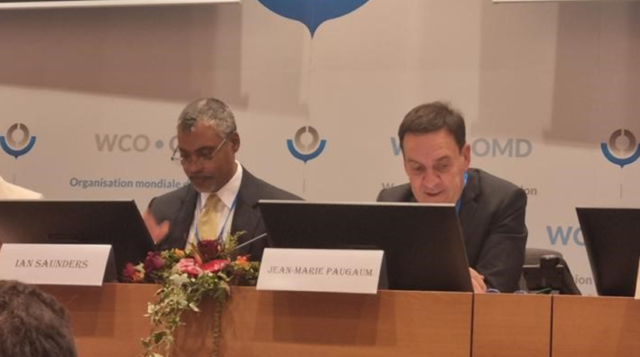
- WTO Deputy Director-General Jean-Marie Paugam seeks closer cooperation between the World Customs Organization and WTO to support the shift to a green economy
- Paugam says one in six of around 14,600 trade-related environmental measures notified by WTO were environmentally related
- He says most of these measures require direct or indirect action from customs officials, such as environmental requirements, conformity, risk assessment procedures, import and export licenses, bans, quotas, and so on
A top World Trade Organization official has called for closer cooperation between the World Customs Organization and WTO to support the transition to a green economy.
Speaking at the WCO’s “Green Customs Global Conference” on June 28, WTO Deputy Director-General Jean-Marie Paugam said more and more trade measures are related to the environment.
Since 2009, WTO members have notified around 14,600 trade-related environmental measures, with one in six measures now being environmentally related compared with one in 12 in 1997.
“Most of these measures are the kind of policies that will require direct or indirect action from customs officials, such as environmental requirements, conformity, risk assessment procedures, import and export licenses, bans, quotas, and so on,” Paugam said.
“This means a lot of added challenges and work for customs officials. And trade negotiators absolutely need to be aware of these challenges if they want their measure to be efficient in practice in having a concrete impact for the environment.”
Customs officials need to be engaged early in the process to ensure these policies are coherent, fit-for-purpose and implementable, Paugam said.
“Their views are vital to ensuring effective implementation – we need to hear their voices on what approaches and types of support will be required to adopt new green technologies and facilitation measures,” he said.
Paugam said several concrete initiatives can be taken to step up WTO-WCO cooperation, including:
- Exchanging data on environmentally related trade measures to help detect future trends in custom practices;
- Using the environmental initiatives launched by a large number of WTO members on trade and environmental sustainability and plastics pollution as a “laboratory” of ideas to forecast what customs officials will need to know and deliver on, and
- Increasing cooperation on technical assistance and capacity-building.
Paugam also told the WCO conference that the WTO’s 12th Ministerial Conference held from June 12 to 17 produced important outcomes for the WTO’s trade and environment work.
Ministers affirmed that climate change is a global environmental challenge and cited the importance of the multilateral trading system in achieving the UN’s sustainable development goals (SGDs). They also produced the first multilateral agreement to curb harmful fisheries subsidies, in line with the mandate fixed under SGD 14.6, he said.
“It is the first time in almost 80 years of the multilateral trading system that WTO members agreed to adopt trade obligations with the central purpose of contributing to environmental sustainability,” Paugam said.
The two-day meeting began on June 27 at WCO’s Brussels headquarters. Its objectives were to:
- Frame the scope of the environmental debate in which Customs can play a major part and understanding how Customs can take further action and contribute to environmental objectives;
- Assess stakeholder priorities and gathering proposals for a forward-looking WCO agenda on protecting the environment through trade and sustainable supply chains;
- Take into account the perspective of developing countries, and
- Define gaps in international instruments and tools.
WCO said the conference drew together a wide range of stakeholders who shared their proposals on priorities and options for a WCO agenda for Green Customs that can help drive progress on the environmentally related UN sustainable development goals.








